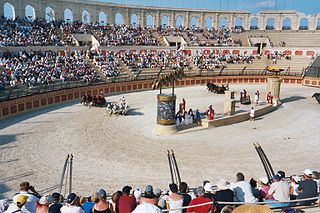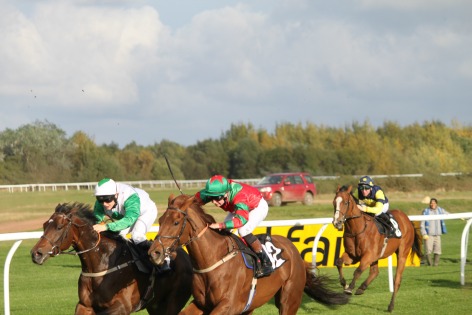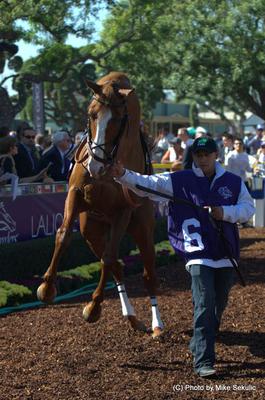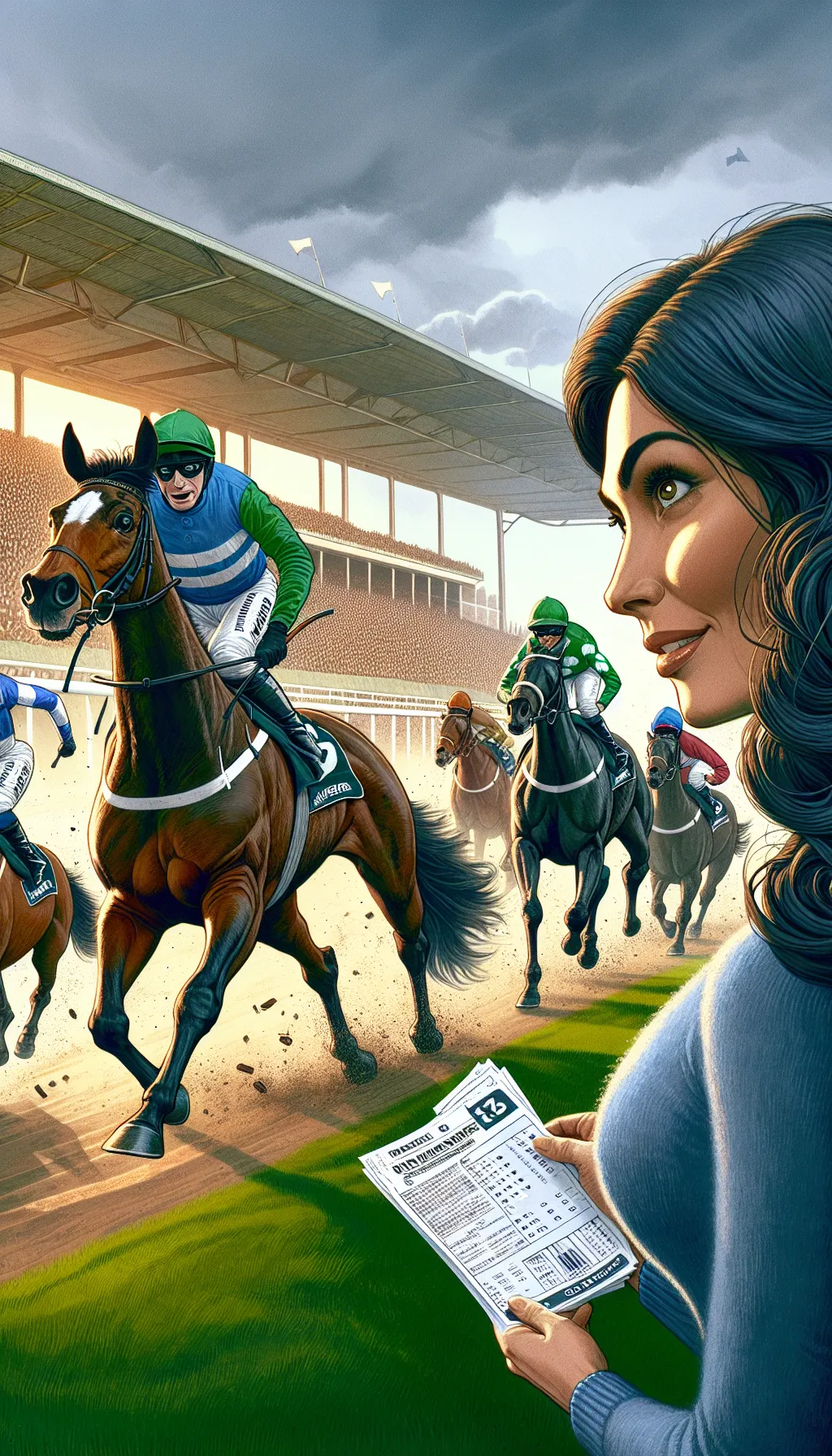Horse Racing Fans
 Ascot Horse Racing Fans
Ascot Horse Racing FansWhen you get in your car in the morning and drive to work, it’s easy to forget that less than 120 years ago your ancestor’s morning commute involved straddling a horse and gently kicking at its sides rather than sitting in a car and flicking the ignition.
Humanity’s affinity with horses goes far further back than the early 20th century though. Archaeological evidence shows that horses were first domesticated around 6,000 years ago in the steppe lands of modern day Ukraine to Kazakhstan.
The first recorded example of horse racing came 2,500 years later when the Assyrian Kings were said to be breeding horses specifically for racing.
 Chariot Racing
Chariot RacingThen came chariot racing in ancient Rome which was more than just a sport; it was a high-octane spectacle that captivated the masses, fueled fierce rivalries, and even served as a political tool. From the 6th century BC to the fall of the Western Roman Empire in 476 AD, these adrenaline-pumping races roared through the dusty tracks of Rome, offering thrills, spills, and a glimpse into the Roman social landscape.
The Thrill of the Circus:
Imagine a Colosseum-sized arena, the Circus Maximus, packed with 250,000 cheering spectators. The air crackles with anticipation as four chariots, emblazoned with the colors of rival teams – red, white, blue, and green – thunder onto the track. The charioteers, often slaves or freedmen, stand whip in hand, urging their teams of two to four horses to breakneck speeds.
Races typically consisted of seven laps around the elongated oval track, with sharp turns demanding daring maneuvers. Charioteers skimmed the edge of disaster, brushing wheels, cutting corners, and sometimes even employing deliberate tactics to crash out their opponents.
Danger and Glory:
Chariot racing was brutally dangerous. Lightweight chariots offered little protection, and crashes were frequent, often resulting in injuries and even death. Spectators roared with excitement as wrecks sent charioteers flying and horses careening out of control. Yet, amidst the peril, emerged heroes.
Skilled charioteers like Scorpus and Diocles became superstars, their victories immortalized in mosaics and statues. They commanded immense wealth and fame, rivalling even senators in popularity. Their fans, organized into boisterous factions, passionately supported their colors, showering their idols with gold and showering their rivals with curses.
Beyond the Arena:
Chariot racing transcended the mere entertainment of the games. Emperors used it to appease the public, staging races during religious festivals and celebrations. Victories boosted their popularity, while crashes could incite riots. The four racing factions became powerful entities, sometimes wielding influence in political matters.
A Legacy in Dust:
Though the roar of the chariots has faded into history, their legacy lives on. Chariot racing offers a glimpse into the Roman passion for spectacle, their fascination with danger, and the complex social dynamics of the empire. It was a sport where glory and peril danced hand-in-hand, leaving behind a trail of excitement, controversy, and the echo of hooves on ancient Roman soil.
3,500 years later in the modern day we are still obsessed with horse racing, so what is it about the sport that has made it endure throughout the millennia? Read on to find out.
 The Stage Is Set For The Grand National
The Stage Is Set For The Grand NationalHorse Racing Fans Love The Competition
Without wanting to sound like Judge Holden in Cormac McCarthy’s excellent novel Blood Meridian, there is something deeply ingrained in the human psyche that loves competition. In times of historical flux, this unfortunately often plays out in bloody conflict.
In times of peace however, we satisfy our thirst for competition through organised sports and horse racing is one of the earliest examples of that. For millennia the sight of highly talented jockeys riding the best physical equine specimens has tantalised audiences.
What perhaps has become so enduring for horse racing fans is the speed at which the horses run and the element of danger that accompanies that. Horse racing not only provides spectators with the thrill of competition and the exhilaration of speed, but it also comes with the high-stakes jeopardy of real danger for the jockeys.
Gambling
Like horse racing, gambling has a long and storied history stretching back over the millennia and is still hugely popular to this day. Estimates suggest that the annual figure legally wagered in the world exceeds $10 trillion.
Whilst not as popular as it used to be, horse racing betting still accounts for a large amount of that figure and is the leading form of gambling in most English speaking countries and in France. Betting on horse racing is a pastime for horse racing fans that precedes the advent of Christianity.
One of the chief reasons that it has remained so enduringly popular is that it adds an extra layer of intrigue and excitement to what is already a fast-paced and thrilling sport. In addition to that, the short nature of horse racing gives bettors the ability to secure quick and satisfying wins.
Experience
There are many sports that are better enjoyed from behind a television screen such as cricket, American football and darts. There are others however that are immeasurably better when you watch them live and in person and horse racing is one of them.
That’s not because you get a better view than you do on television though, as is the case with other sports. Rather it’s because of the unique experience of going to the races itself. A day at the races is an event in itself with the thrill of the races themselves being supplementary to the experience.
It’s an opportunity to dress up in your finest clothes and mingle with the who’s who of your local area. It’s also a great place to take advantage of the finest hospitality where you can eat like an Assyrian King.
In Summary
There are sports that provide the same thrills and spills of horse racing, but there are few that match all of the above criteria quite as well. In addition to that, horse racing is one of the oldest and fondest sports that we as a species have.
Football, cricket, basketball and every other sport that eats up the coverage of ESPN and Sky Sports aren’t as deeply ingrained in the human psyche as horse racing. They weren’t played by Assyrian Kings, the Ancient Greeks or enjoyed by Roman Emperors.
For that reason, horse racing is a unique sport that will forever be held dear not just here, but all around the globe.

You Might Like These
Kentucky Derby Odds: Will there be a hometown favorite?
Preakness Stakes Odds: Will the champions face fresh challengers?
Belmont Stakes Odds: At 1½ miles, stamina becomes the great equalizer as longshots can threaten.
Breeders' Cup Odds: International talent collides with American speed, reshuffling expectations across the board.
Dubai World Cup Odds: Under desert lights, can a Japanese sensation prevail against the world's elite.
Pegasus Cup Odds: Retirement beckons for champions seeking one final payday at America's richest race.
Bet on Horses: Every wager tells a story of hope against mathematical probability.
Kentucky Derby Betting: Beneath fancy hats and mint juleps, fortunes change hands with each thundering hoof.
Preakness Stakes Betting: The middle jewel rewards those who recognize when Derby form holds true.
Belmont Stakes Betting: Distance separates champions from pretenders when the final furlong tests them all.
Breeders Cup Betting: Global racing converges for two days where value hides in plain sight.

Returns Policy: Once a customer has agreed to pay for a product or service no returns will be permitted or payments returned.
All PayPal transactions are subject to the PayPal Privacy Policy
Privacy Policy: Personal details provided to this site by an individual may be shared with third parties unless requested otherwise.
Above policies updated 15 March 2018





